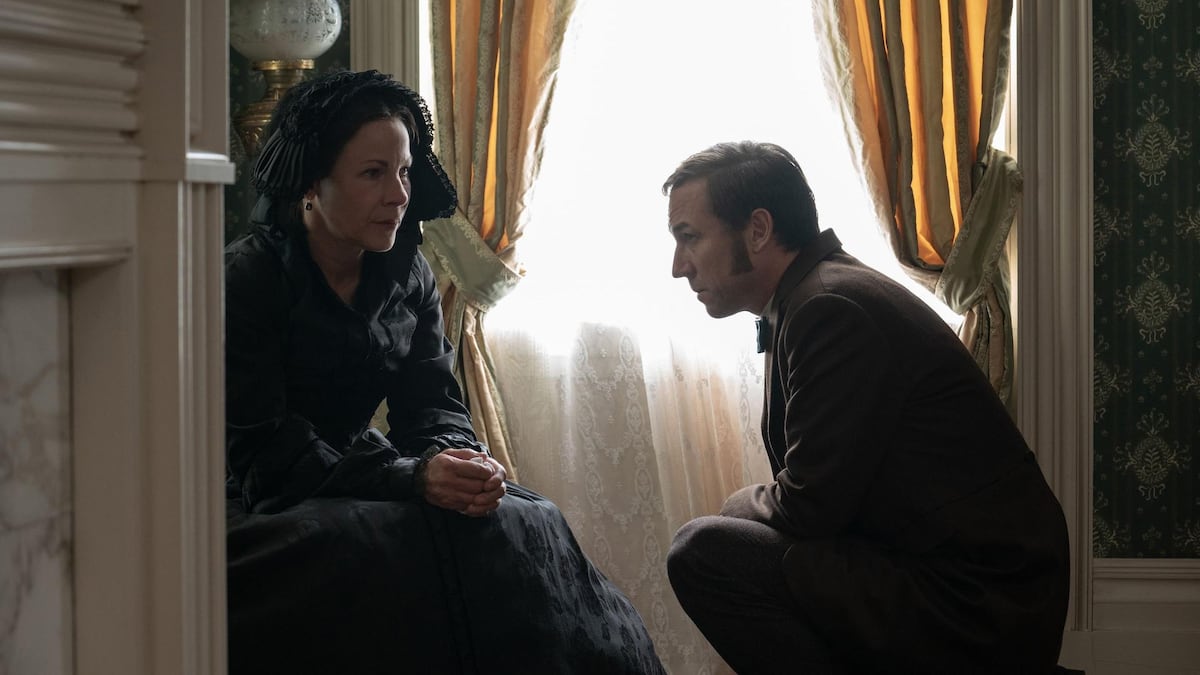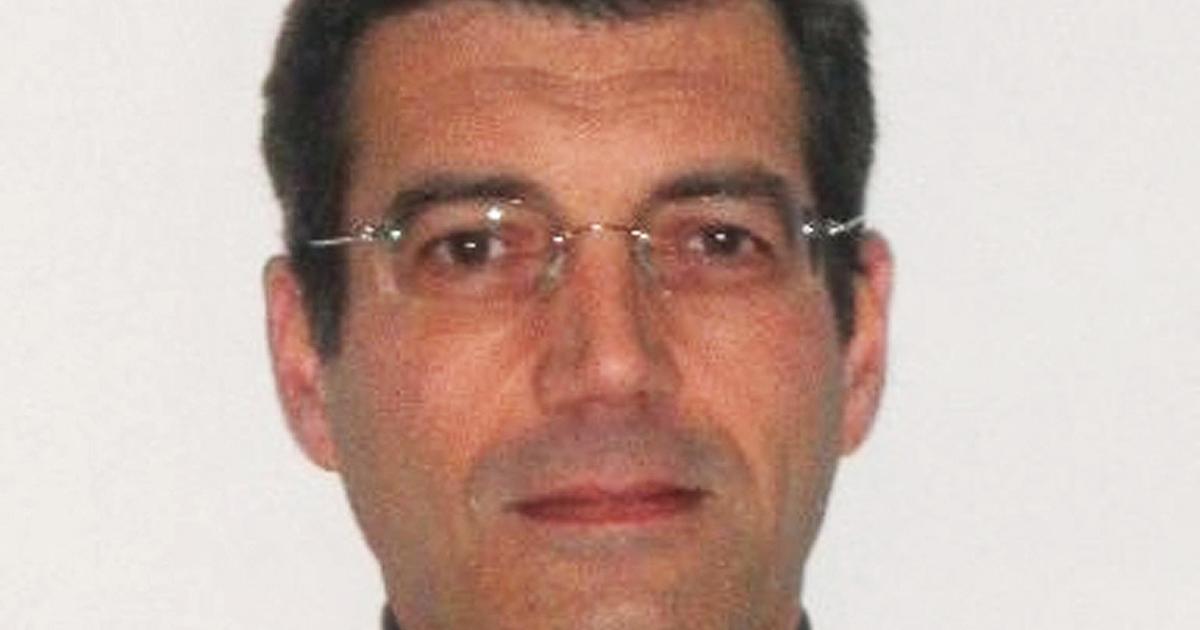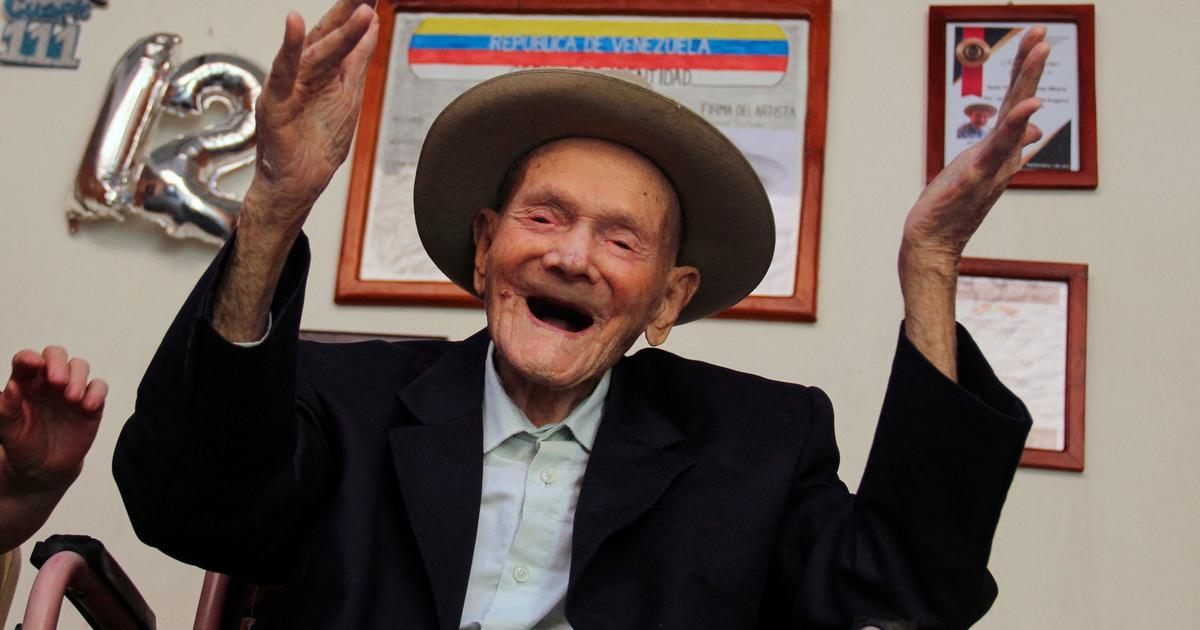Lluís Homar, at the Madrid headquarters of the National Classical Theater Company, of which he is director, in an image taken two weeks ago.
No trace of ego on the walls of his almost naked office as director of the National Classical Theater Company.
Just as austere as the character he has played (until Saturday) at the old Comedy Theater.
The constant prince,
by Calderón de la Barca, demands that clothing of the one who strips off all pretense, like a condemned man who resists cursing his luck and understanding, it is said in the work, that "once pain is communicated, it calms down ..." .
And Lluís Homar (Barcelona, 63 years old) underlines, beginning the interview, as if he were on stage: "Once the pain is communicated, it calms down ... / If not, it is defeated".
The pandemic turns the theater into a risky setting for actors
Lluís Homar, new director of the National Classical Theater Company
Question.
Everything you say as a character could be said by you as a person.
Answer.
"Once the pain is communicated, it subsides ...".
Yes. I totally agree.
For me there is something important: accompanying the other, listening without having to judge ... Calderón says: "I will let the pain speak through my voice."
In these moments, pain is something that is kept in a private area, as if sharing were not listed.
There is a dehumanization of relationships, of everything.
And the only real alternative is caring for the other.
P.
A time when it seems that the disease watches over us, subjected, like his character in the play, to the law of pain.
R.
As if we were prisoners of the pain you suffer ... There is a generalized pain that we can understand, which is produced by covid-19, an adverse circumstance that affects us all and that triggers human disasters: deaths, people without work, unions harmed ... In our sector we have the protection of the Administration, but how many people are out in the open, how many shows have ceased to exist ... This is social pain, but there is intimate pain.
In our profession it is more essential than ever to open the doors, communicate the pain to appease it, get closer to the viewer, tell him that he is invited to share another dimension of things despite the circumstances.
That phrase that you have underlined, "communicated the pain ...", is at this moment a revolutionary proclamation ...
Q.
When you are down there, on stage, and you are an actor, and in this case you are in a dungeon, what you say is part of your own personality?
A.
In a way, yes.
It is not so much because I have immersed myself in the soul of Fernando [the constant prince] and that I lose myself, but because I find that those things I say vibrate within me as well.
Perhaps what I like to say the most in the play is when, at the end, in that state of being a prisoner, I say: “But what an evil is not mortal if man is mortal, and in this confused abyss, the disease itself he comes to kill later ”.
And, what comes: "Man, see that you are not neglected, and do not expect a disease to warn you, because you are your biggest disease."
"In our profession it is more essential than ever to open doors, communicate pain to appease it, get closer to the viewer"
Q.
That man also says: “Who am I?
Am I more than a man?
R.
So you can find Mandela or Gandhi, characters against their own ego.
We live in a system in which the self prevails, in which you tell yourself that you have to wake up because if you are not a
looser,
as the young people say.
The worst thing, it is said, is being a loser.
The play is full of the refutation of those arrogances.
The world is where it is because it thinks the Earth is at its service, so the Earth creates its own defense mechanisms.
Humility, says the character, connects me with the Whole, which is God, and connects me from another perspective with the human.
P.
What does this symbolism of Calderón say to this moment?
R.
That I repeated before: "Man, see that you are not careless ...".
The man of the 21st century thinks that eternity is the immediate, but not in the Buddhist or Christian sense, but in a materialistic sense, of the idea of comfort.
It is the seventeenth century speaking to the twenty-first, yes.
If there is one thing I feel happy about, it is to be where I am to contribute my grain of sand to make that bridge between centuries from this company.
Adolfo Marsillach used to say that here we do contemporary theater with classic texts.
Calderón speaks of a dimension of the eternal, so his dimension encompasses this time.
Saint John of the Cross, Saint Teresa…, they are mystics and they are revolutionaries, because they are giving us a true antidote, a useful tool, to be now and on Earth.
They were a way of really being in life.
“We live in a system in which the self prevails, in which you tell yourself that you have to wake up because if you are not a 'looser', as the young people say.
The worst thing, it is said, is being a loser.
The work is full of the refutation of those arrogances "
Q.
That parliament against the abuse of power that Calderón offers, today can be transferred to that image of the Minneapolis policeman suffocating a black man with his knee.
R.
In the work that metaphor is also perceived, that's right.
Power is not submission, it is obliged to welcome, to be kind and pious, to save man from the poisons that lie in wait for him.
And the theater must contribute to disseminating that civil task of serving as an ethical reference for those who feel lost in the great human crises, such as this one we are experiencing.
It is a human duty that lasts centuries and that we here are prolonging.
We claim the Golden Age, and I believe that the Golden Age is a matter of State.
P.
And does the State know?
A.
No, because I suppose there are immediate occupations, like, for example, this absolutely desperate situation.
But it must also be known that there are some spaces, some foods, that have to do with other things.
Q.
What is the consequence of neglecting these other foods that you refer to?
R.
We have a reflection of what is done in France, in Germany, with respect to the Golden Age. Here it is known that this heritage exists, but it is not known from within.
That is a job that needs to be done.
And each one must contribute to opening those windows, although it is essential that the State also do its part because if not, the pace of that recovery of heritage that classical theater means is going to be very slow, and we may be late.
Q.
This work you represent is an appeal to humility.
What would be for you the state of humility of the society in which you live?
R.
To be humble is to give without waiting in return, it is to go against the current.
I am always ready to put myself in the starting box.
I am very grateful to my failures, because they always put me at the beginning of the race.
Humility is all that and, for me, it is also something that is not listed today.
Humility is what Gandhi stood for: not fighting, giving in, that Christian thing from the other cheek.
That dismantles the arrogance of the other.
Non-confrontation, acceptance of what is.
That represents the constant prince, and that is not common, it is not.

/cloudfront-eu-central-1.images.arcpublishing.com/prisa/FAV7LRQ77FDGZEWMVUDSHC24RQ.jpg)







